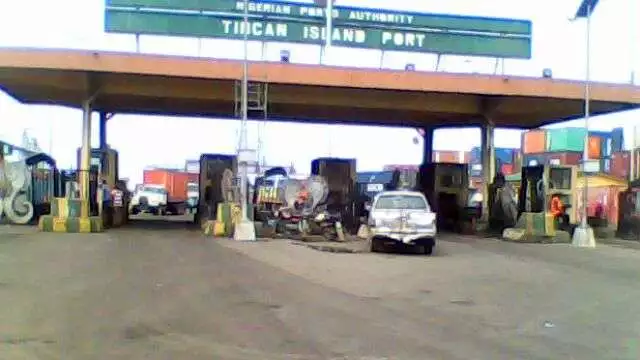Baba Musa M.A., Comptroller, Tin-can Island Command may have learnt from the mistakes of officials of Kirikiri Lighter Terminal ,phase 1, in the implementation of the Customs Integrated Information Systems, NCIS,92. The implementation of the NCIS 92 at the KLT had been described by Industry Operators as a failure as both the Customs Operatives and the stakeholders were completely at a loss on how to go about the new Customs ICT. Many described it as a failure as the Command witnessed revenue loss in much of 2017.
Many had attributed the failure to lack of proper sensitization Campaigns on the part of the management to prepare the mind of the senior offices and the stakeholders about the deployment of the software to the Command operations.
As a prelude to avoiding the short comings of KLT in the implementation of the CIS 92 in the Command , Baba Musa was said to have met with various segment of officers and men of the Command to prepare their mind about the new Customs Information Communication Systems II and to get their reactions.

A source told the Magazine that the Implementation team from the Customs Headquarters, Abuja, with the support of the Command Information Communication Technology , ICT, personnel to retrain the officers and men of the Command on the CIS 92.
Aware that the Command cannot achieve the desired success in the implementation of the Scheme without properly training the stakeholders, particularly the agents, who operate within the lager chain fully embrace the new application which is faster , more efficient and all en-compassing in cargo clearance.
The essense of the retraining program me for officers and men of Command including the stakeholders, according to a source was because the NCIS 92 software is about to be deployed into the operation of the Command. It is expected that with the retraining program me stakeholders will be made to imbibe the culture of total and will compliance with the government Fiscal Policy measures for the economic growth and development of the country.
The Tin can Island Customs boss is optimistic that by the software become operational in the Command, ”’all areas of revenue loopholes exploited by importers with their agents to shortchange the government would have been blocked and thus increasing the Command monthly revenue profile and compliance level.
Uche Ejesieme, a Deputy Superintendent of Customs and public Relations officer of the Command confirmed that the CIS 92, Implementation team on Tuesday, March 6, 2018, ”commenced the sensitization program me for senior officers of the Command in preparation for the deployment of the CIS92 in Tin can Island port. The Senior officers refresher training program me was said to have been quickly followed by that of the stakeholders on Wednesday, March 7, 2018.
At the CIS 92 stakeholder workshop, Baba Musa was said to have admonished the participants to be meticulous in their conduct as the platform has been configured in such a way that excuses for contravention of government Fiscal Policy measures would not be tolerated.
Given an insider information, the Comptroller was said to have informed the stakeholders that the software will go with the biometrics which will ensure that violation of acceptable standards are traced and tracked .
It would be recalled that the Tin can Island Customs boss from the onset made himself clear about his policy direction on trade facilitation. and how to make the port a hub in Nigeria and transit port for the land locked Niger Republic and Chad bound cargoes. Going by the studies conducted by the Nigeria Shippers Council, NSC, on the instruction of Hassan Bello, the Council Executive Secretary, delay in the release of cargoes from Nigeria ports leading to high cost of clearing cargoes at the nation’s seaports may have facilitated the dumping of Nigeria ports by these land locked countries to the ports of Cotonou in Republic of Benin and other ports in the West African sub-region.
He may have been encouraged to introduce the trade facilitation tool, dubbed ”Time Release Studies”. This innovation, the Tin can Island Customs boss had said is meant to ”monitor the flow of declarations from the point of lodgment to capture, examination and release with a view to denying the gaps in trade value chain”.
Officers and stakeholders who spoke to the Magazine applauded the Tin can Island Customs boss for following the footsteps of his predecessor, Yusuf Bashar, now Comptroller , Pre-Arrival Assessment Report, PAAR, at the Customs Headquarters to prepare the ground for the take off of the higher NCIS 92 in the Command. They were optimistic that the Customs platform would improve the level compliance at the port.
They could not hide their feeling over the time release studies , which they described as a step in the right direction that would expose where the delay in the release of cargoes at the port is coming from either from the shipping Companies , terminal operators , Customs Operatives or agents. the stakeholders are optimistic that report of the studies would go a long way in assisting the Comptroller to fashion out measures that could facilitate timely release of cargoes at the port to reduce the cost of clearing and attract more customers to the port including economic operators of the land locked countries.
Discover more from The Source
Subscribe to get the latest posts sent to your email.








